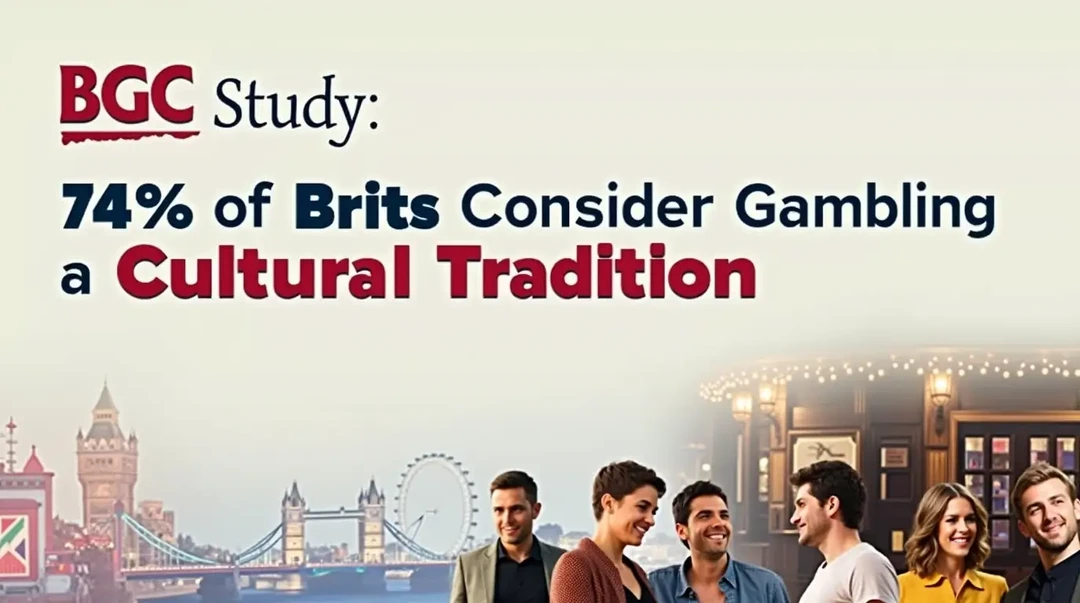BGC Study: 74% of Brits Consider Gambling a Cultural Tradition

One of the latest YouGov polls discovered that 74% of UK respondents view gambling as deeply embedded in British culture. The survey was commissioned by the Betting and Gaming Council (BGC), most likely as part of the opposition to earlier proposed UK gambling tax reforms. A noticeable part of the poll participants (31%) are also convinced that the government has resorted to excessive constraints towards the regulated sector. Concerns that a uniform tax rate and other measures will empower offshore markets are escalating among both the public and industry representatives.
Good Intentions Behind the Betting & Gaming Council Survey
Grainne Hurst, BGC CEO, has repeatedly stated that a gambling tax increase is a big threat and will be terrible for the regulated ecosystem. Backed by the poll results, she reminded lawmakers that maintaining a sustainable legal market is, first of all, essential for player protection. While tax hikes will conversely strengthen the capacity of black market operators who already bite a big slice of UK customers' attention by offering higher bonuses and better payouts.
As a result, legal online casinos are now struggling to remain competitive under such pressure. Both from the government’s regulations and offshore companies. And responsible operators are the key to offering a protected gaming environment. It is on them they should focus.
Apart from being a valued part of Britain’s culture, the gambling industry also stands as a powerful source of economic growth. Having official figures from the council, licensed operators replenish the state’s treasury with £6.8 billion, annually.
The Hidden Cost of Driving UK Players Offshore
Industry stakeholders are also unsatisfied with the possible tax increase on gambling in the UK. Giant businesses like Entain generate enormous amounts of tax revenue for the British government. Permanent Entain’s CEO, Stella David, stresses that people’s mass switch to black markets, if tax hikes take place, will significantly cut money that could replenish the state treasury. The migration will lead to unintended consequences in the form of depressed tax receipts.
Let’s turn Stella David’s words into math for a clearer picture. The overall number of UK people who go offshore (use non-UK casinos and betting sites) amounts to no less than 1.5 million. Annually, this huge crowd spends up to 4.2 billion pounds in wagers on illegal sites, which do not pay any tax. If the sum flows into the public purse, it could significantly help support, say, healthcare or some valuable community initiatives. And the loss will grow if regulated gambling faces more constraints from the government.
Probably an Own Goal, Isn’t It?
The Netherlands case shows that raising the online gambling tax rate may turn into an own goal. In January 2025, the Dutch government resolved to hike the taxation level from 30.5% to 34.2%. That radical decision later produced the fallout, as evidenced by regulatory assessments and industry data. One can easily guess that illegal play went up while gross gaming revenue (GGR) dropped in the process.
The chair of KSA (the regulatory authority there) officially admitted that the higher tax collection initiative didn’t work as intended. They experienced a visible shortfall – €30m – already during the first half of 2025, compared to the same period last year. The question is, why then, the UK government, having such a bright example, keep pushing the adoption of the law.
Who Fails, Who Wins?
In the current situation, the obvious losers are UKGC-licensed casinos and the Treasury. Offshore companies, the winners, are probably already rubbing their hands, anticipating the crowds of UK players and their money. The risks that tax hikes and new strict regulations will have counterproductive effects are high. Both make legal gambling less attractive to punters. And the example from the Netherlands brightly illustrates the possible negative consequences.
Cardmates joins the debate and reminds that playing on illegal sites lacks proper supervision and security measures. Stay alert, gamble responsibly!





Please, login or register.